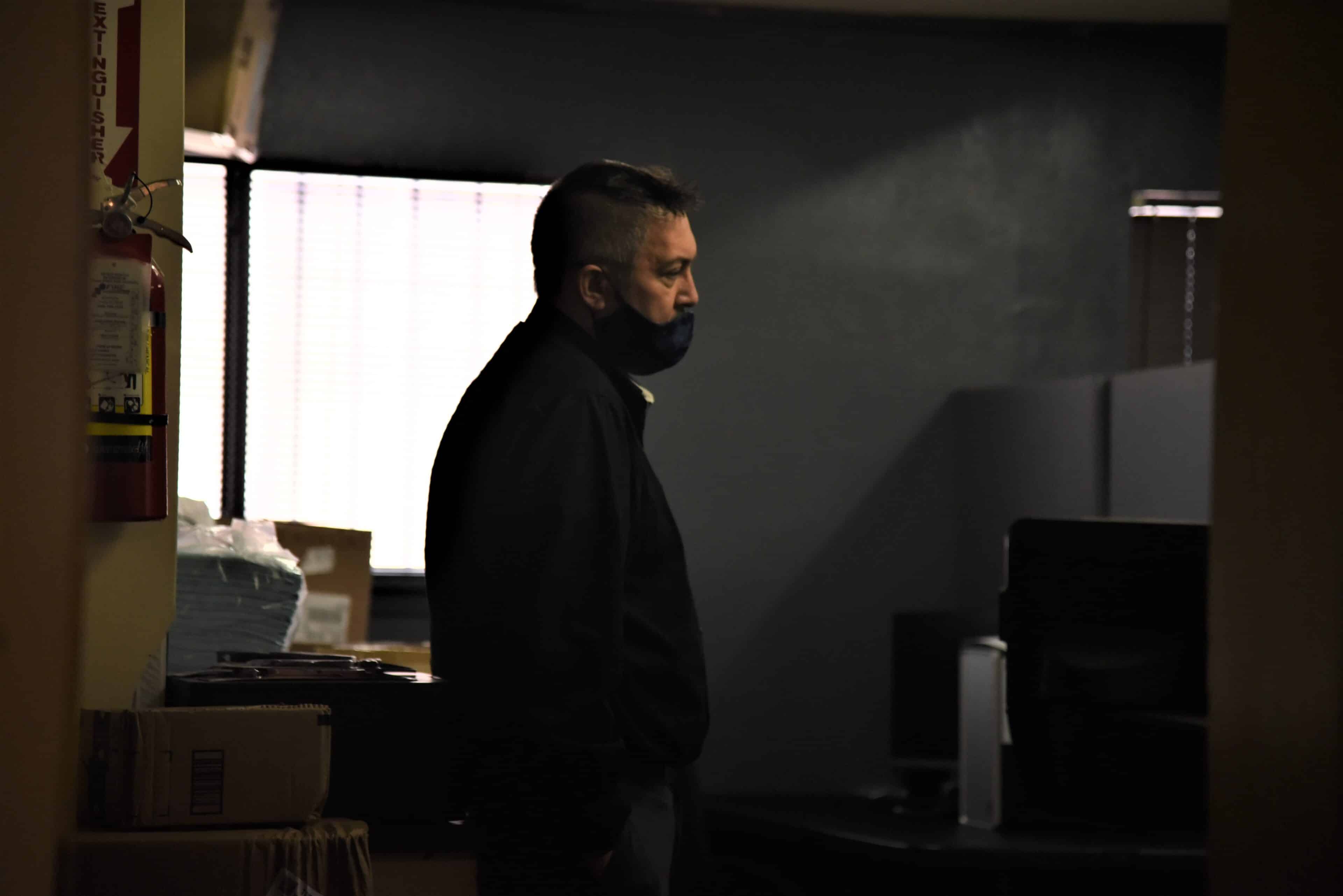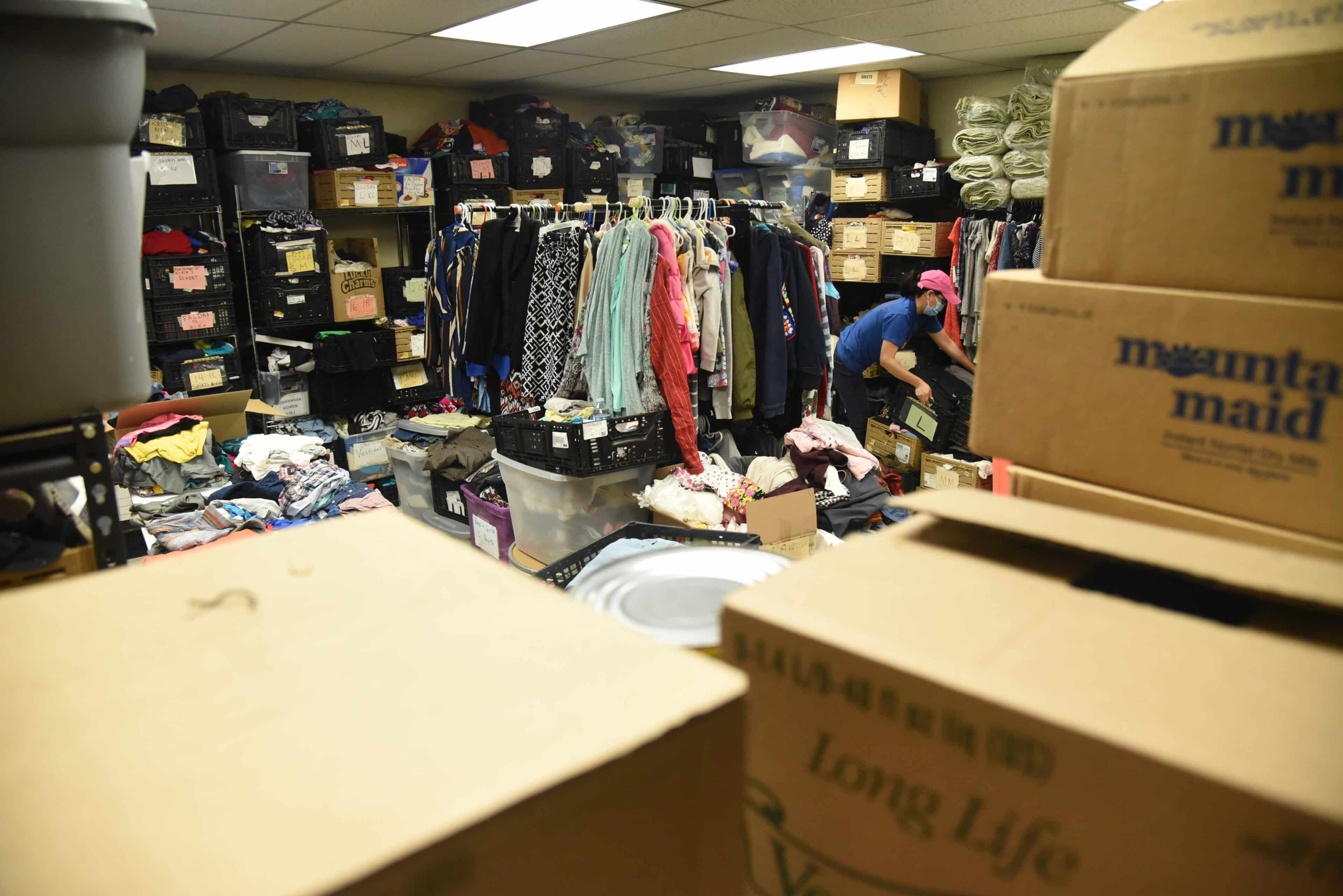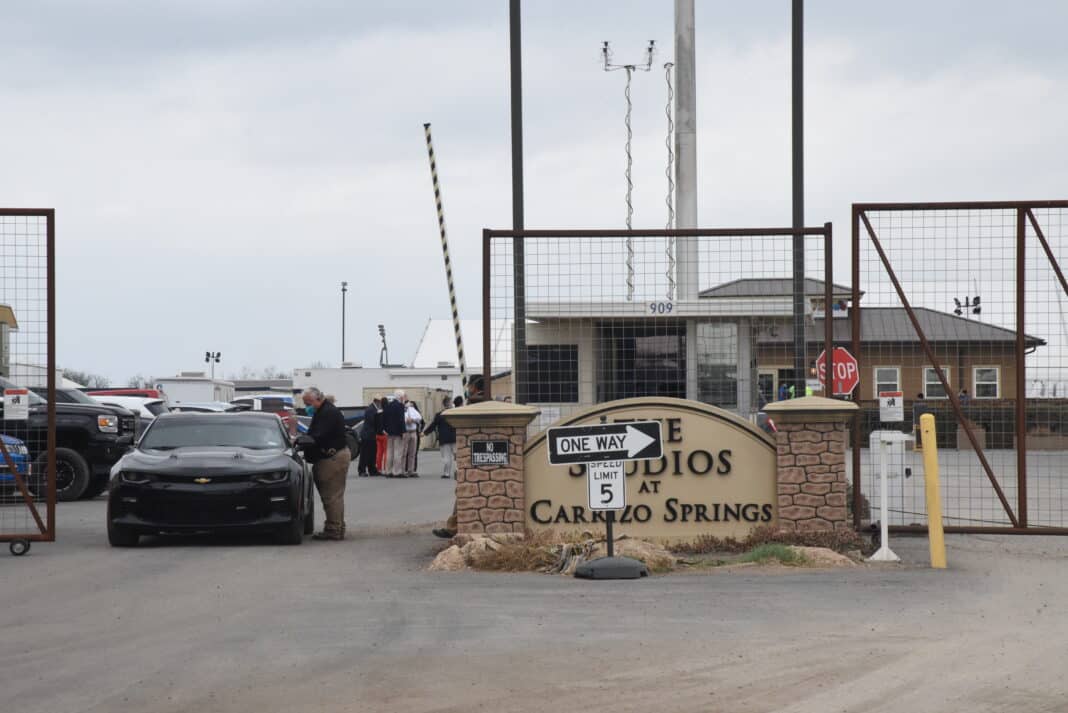On Friday, while U.S. Rep. Henry Cuellar and U.S. Sen. John Cornyn visited a temporary youth shelter in Carrizo Springs, Texas, Biden administration officials were holding a media call — both aimed to address the growing number of people entering the United States without authorization.
White tarps contrasted against the grey, overcast skies above the fence-lined youth shelter — formerly an oil boom man-camp — with nearly 960 beds in Carrizo Springs on Friday morning, only about 700 were in use by teenagers who entered the country alone.
“Is this a challenge or is this a crisis?” Cornyn asked one of the contractors operating the youth shelter. “He said, this is a Category 5 hurricane in the Gulf, with tropical storm force winds in the coast. It’s coming.”
Nearly 30,000 children were under federal custody so far this fiscal year, a rate greater than any seen in over a decade. A large portion of those currently detained are in the Rio Grande Valley.
U.S. Border Patrol buildings used to detain them are over capacity. Most of those currently detained are expelled back into Mexico under a public health federal code known as Title 42. Others seeking asylum are released into the country to ease overcrowding.
Children can only be released from the facilities to the U.S. Department of Health and Human Services Office of Refugee Resettlement. The agency places children in licensed shelters unless a relative or sponsor can pick up their child.
As of last week, of 200 children taken into custody daily only about 20 — or 10% — were taken from Border Patrol in the Valley into ORR facilities.
Once the children are in the care of ORR, they’re averaging 37 days in their custody before a relative or sponsor can take them into their home. A lengthy vetting process is a factor in the extended length of stay.
ACTIONS ADDRESSING BOTTLENECK
Several decisions will soon take effect to reduce the bottleneck in both facilities.
The vetting process will start before the child is taken from U.S. Customs and Border Protection custody. Biden administration officials said they will be placing ORR staff inside CBP facilities to talk to children, contact sponsors, and begin the vetting process.
“That’s going to shave hours, if not days off of our process to ensure that we’re uniting those children with their family members and sponsors as quickly as possible,” administration officials said.
FEMA was also directed to help “receive, shelter, and transfer unaccompanied children who make the dangerous journey to the U.S. southwest border,” as per a Saturday news release.
Staff will be helping HHS look at every available option to quickly expand physical capacity for appropriate lodging.
More bed space will also be created.
“We’re adding to that, literally every week,” administration officials said, adding, “in terms of supplemental grants to our current facilities to expand and to do funding opportunity announcements for new facilities, which would be permanent facilities to host children.”
But not all 200 shelters around the country, like the one in Carrizo Springs, have full beds. Rep. Cuellar, D-Laredo, said the government’s nearly $1 million annual contract will pay for the bed space regardless of their use.
Administration officials said shelters, with the exception of the one in Carrizo Springs, are licensed by the states in which they operate. Although they received a memo from the Centers for Disease Control and Prevention dictating that they could lift COVID-19 space restrictions and operate at full capacity, some are unable to apply the changes quickly.
“Some of those decisions are made by state licensing officials and other state officials, in terms of public health, and otherwise, in each of those states, they all have different standards. And they all dictate what our facilities are allowed to do in order to maintain their licensure,” administration officials explained.
Shelters will be working “aggressively” to comply and open up the rest of the beds, administration officials assured.
The U.S. Department of Homeland Security also announced the recession of a memorandum of understanding they believe had a “chilling effect” that threatened immigration action against caretakers who would claim children from HHS.
The agreement was left toothless through operational directives and litigation, but administration officials said Friday they wanted to stress the message: “There will not be any immigration enforcement consequences for a family member or a sponsor who comes forward to be united with an unaccompanied child in our care. We are a child welfare agency. We are not an immigration enforcement agency.”
LOCAL IMPACT RESOLUTION
“This is not a partisan issue,” Cornyn, R-Texas, said during a roundtable discussion in Laredo with local and federal stakeholders.
Local leaders from the private and public sector in Eagle Pass, Laredo, Webb County and the Valley had a seat at the table inside the Texas A&M International University ballroom to discuss their concerns.
Resources and funding were a chief concern, especially for non-governmental organizations like The Holding Institute, the only overnight shelter in Laredo serving the homeless and migrants.

“We spent easily, say, on utilities $3,000 a month,” Rev. Mike Smith, the executive director, estimated. “On food, maybe close to the same thing, maybe $2,800 a month, on raw food. It doesn’t include cooking, prepping, serving, cleaning.”
On average, they’re receiving 65 people a day from the Valley, Del Rio, Eagle Pass or from Laredo. They serve three meals a day and offer showers, clean clothes and a place to spend the night.
By Friday evening, only about six migrants were at the shelter. Some were dropped off there, others at the bus station. A local couple with a 9-month-old girl, recently homeless, would also be arriving. Smith was preoccupied preparing for their arrival.
He looked in the office with a large binder of names and registration for all migrants who arrived so far this year. Then he looked in another where he found the COVID-19 test kits sent from the Texas Division of Emergency Management.
“Our beds have been cut in half. Our volunteers have been cut probably by 75%, and our ability to fundraise was cut about 75%, as well,” Smith said.
In the lobby, the former sanctuary of the Rev. Smith’s church, a volunteer helped register those who arrived; a different volunteer served a warm meal, and another found clean clothes in each of their sizes.
Lupita Sandoval was digging through overflowing plastic bins in the back room looking for a towel. She arrived at the shelter to volunteer as she normally does after working a full-time shift on her feet as a waitress.

She does it out of love, “agape love,” she said, referring to a Biblical term based on a Greek word and translates to a high form of sacrificial love.
Smith relies on help from the few who feel compelled to show, but he understands those who choose to stay home. Yet, while he has fewer hands to help, more people are looking to them as food insecurity grows.
In March of last year, they were helping about 50 households a week with food, he said.
“Now, we’re doing food every Tuesday and Thursday. We have a list of every week, close to a thousand households come for emergency food, 30 pounds of food, in addition to the shelter operations,” Smith said.
Organizations like his are usually reimbursed for the funding used to help assist a humanitarian crisis as they were in 2019.
The federal government is offering a different, faster option through FEMA funds sent directly to cities, counties and NGOs, but the governor said he would not accept them.
Rep. Cuellar assured constituents he secured $130 million for the Emergency Food and Shelter Grant Program, a program under FEMA.
The funds could help border communities that commit local resources to provide food, shelter and transportation to help migrants.
Cuellar said he will be part of an appropriations hearing Tuesday where he will discuss a plan to bypass state approval of federal funding that could provide assistance directly to the entity via a grant application process.
Otherwise, Smith considered the alternative: “If we continue at this pace, I think we can go maybe a few more months. But after that, it’s tough.”





